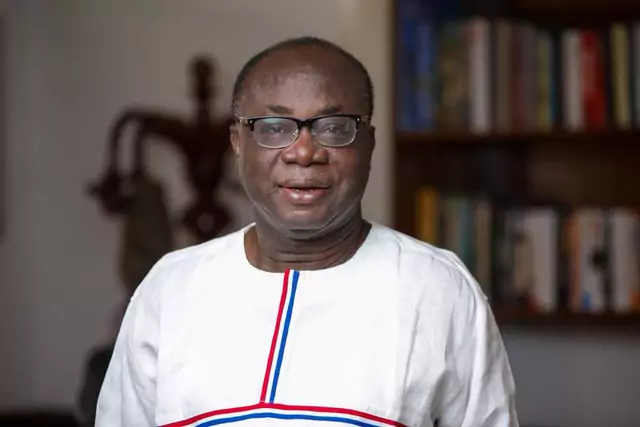|
Getting your Trinity Audio player ready...
|
Freddie Blay, the former Chairman of the New Patriotic Party (NPP), commended the Nana Addo Dankwa Akufo-Addo administration, praising its commitment to tackling corruption. In his view, the current NPP government has been more proactive in combating corruption than any previous administration in Ghana.
“As I am concerned, the government of Nana Addo-Dankwa Akufo-Addo has put in more efforts under the third and fourth republic, to fight corruption than any other government that I can think of,” Blay stated emphatically during the January 14 edition of Hot Issues with Keminni Amanor. He emphasized the need for effective anti-corruption strategies, highlighting the importance of institutional frameworks and policies.
Blay underscored the significance of setting a good example as an individual, but he also stressed the pivotal role of well-crafted policies in the fight against corruption. He pointed out specific initiatives, including digitalization, that contribute to the government’s anti-corruption efforts. According to him, empowering law enforcement agencies like the Police and the Judiciary is essential for a successful anti-corruption campaign.
Addressing concerns about the effectiveness of public institutions in combating corruption, Blay’s sentiments aligned with those of Dr Kwadwo Afari-Gyan, former Chairman of the Electoral Commission. Afari-Gyan, during a Constitution Day Public Lecture, expressed dissatisfaction with the insufficient efforts of institutions entrusted with the mandate to combat corruption.
“Over the years, we have become poorer as a nation and as a people, mainly due to pervasive corruption, particularly in the public sector,” noted Dr Afari-Gyan. He raised alarms about the declining integrity of key public institutions and the rising trend of election losers disputing results due to alleged manipulations.
In response to Afari-Gyan’s concerns, Blay acknowledged the detrimental impact of corruption on the nation’s economy. However, he contextualized corruption as a global issue, emphasizing the need for comprehensive measures to address this pervasive challenge. Despite the recognition of corruption’s negative effects, Blay maintained his stance on the Akufo-Addo administration’s remarkable efforts to combat corruption, crediting the government’s strategic policies and institutional empowerment.
In conclusion, Freddie Blay’s commendation of the Nana Addo Dankwa Akufo-Addo administration for its anti-corruption initiatives reflects a nuanced perspective on the multifaceted nature of combating corruption, encompassing individual examples, policies, and institutional empowerment.





